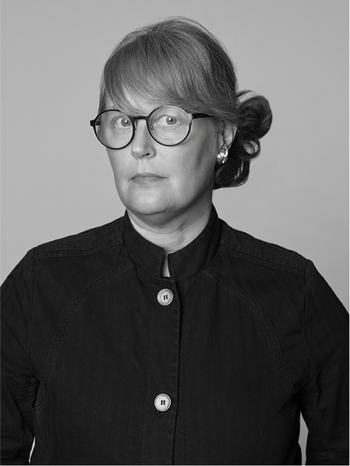Inga-Britt "Ibe" Dahlquist
a bronze necklace, Visby.
Width ca 35 mm, innerdiameter ca 12,5 cm, weight 111 g. Signed IB Dahlquist
Exhibitions
"Nutidssmycken", Nationalmuseum Stockholm 1959
"The International Exhibition of Modern Jewellery", Goldsmiths Hall London 1961
"Form fantasi", Liljevalchs konsthall, Stockholm 1964
More information
Like many other 1950s Swedish innovators of the tradition-laden art of jewellery, Ibe Dahlquist (1924-1996) trained as a designer at Konstfack. After completing her education, she settled in Visby and together with the silversmith Olov Barve, she created jewelry with a distinctive and modernist tone, Barve also graduated from Konstfack in the mid-1950s and they both worked together for several decades. Like other makers of the time, Dahlquist worked with "low" materials, including stones and fossils that she found on Gotland's shores, in opposition to traditional jewelry in precious stones and metals. Ibe Dahlquist was one of the participants in the legendary exhibition "The International Exhibition of Modern Jewellery" in London in 1961. The exhibition mixed established jewelry artists such as Alexander Calder and Pablo Picasso with more traditional jewelry makers such as Harry Winston to show the varied nature of jewelry. Established sculptors were also invited and had their small wax sculptures cast in "low" materials such as bronze. Dahlquist also often and willingly worked in bronze and seems to have had a particular fondness for and ability to bring out the very best from the golden alloy. In 1965 she was recruited to the firm Georg Jensen and designed a number of pieces of jewelery for them with her unmistakable modernist but soft style. Ibe Dahlquist is today represented at, among others, the National Museum in Stockholm and the British Museum in London.









































